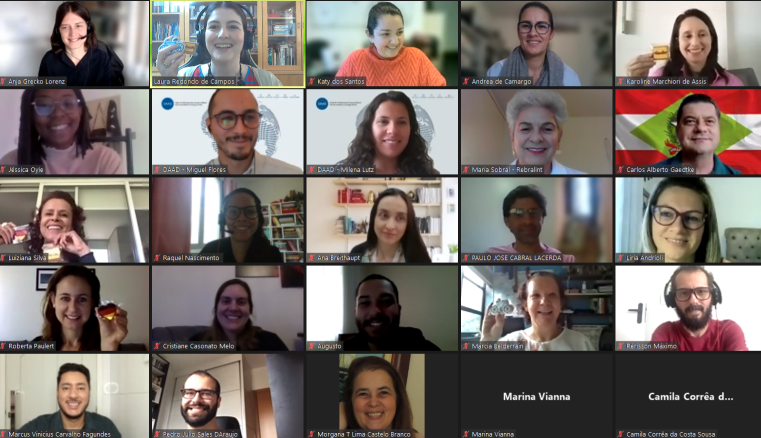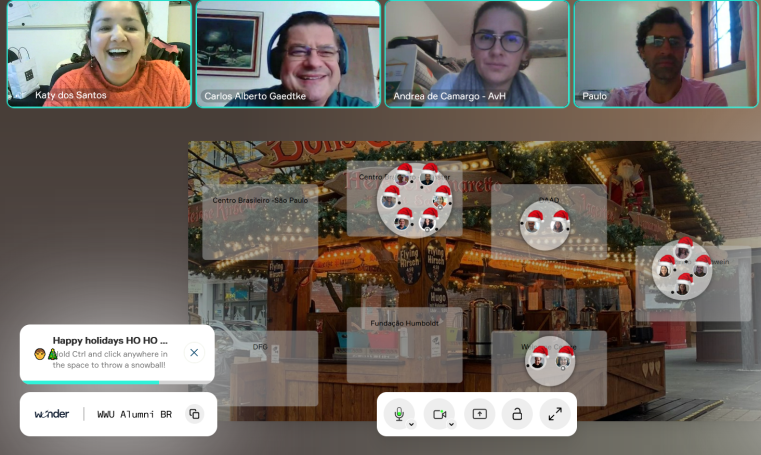5th WWU Brazilian Alumni Meeting

Since 2016, the Brazil Centre has maintained a local alumni group, which currently has more than 200 members. The purpose of this network is to maintain close contact with Brazilian former students and researchers who were at some point in their academic or scientific career at WWU. To maintain proximity and encourage engagement, the Brazil Centre organizes an annual meeting of Brazilian alumni. On December 10th, for the second year in a row, the meeting was held virtually, which once again allowed the participation of alumni from different parts of Brazil.
With a program that was both informative and interactive, the meeting had speakers whose presence demonstrates the relevance of the connection of the university to their alumni: the German ambassador in Brasília, Mr. Heiko Thoms, delivered welcome words, highlighting the importance of dialogue with the event's participants and that the alumni make a fundamental contribution to the Brazilian-German scientific cooperation. The Dean of Internationalization and Transfer at WWU, Prof. Dr. Michael Quante, also attended the event with a conference on the role of universities in knowledge transfer and sustainability, which are priority themes on the WWU agenda.
Participants were also updated on the activities of the alumni group and the Brazil Centre, as well as the impacts of the COVID-19 pandemic on international cooperation with Brazil. Representatives of the German funding agencies DAAD, DFG and the Alexander von Humboldt Foundation also presented their fellowship programs and funding lines available to those who want to reconnect with Münster. Furthermore, the program included an informative lecture on the Brazil-Germany Network for the Internationalization of Higher Education (Rebralint), whose performance has generated impulses to improve academic cooperation with Germany. During the event, participants had the opportunity to interact with each other and with the speakers, which generated very fruitful exchanges, even with the limitation of virtual interaction.

Although the geographic profile was varied, most participants at the event pointed out that they currently work as a university professor and that their stay in Münster had been during their doctorate, either full-time or sandwich-stay, and almost half of them were two or more times in Münster. These responses corroborate the importance of maintaining alumni networks to deepen contacts. Faculty members who maintain an open channel with Münster often end up facilitating the mobility of their undergrad and graduate students, ensuring the sustainability of contacts initiated long ago. All of this is demonstrated in the continuous growth of the WWU alumni network in Brazil, which makes up one of the important pillars of the university's academic and scientific cooperation.

